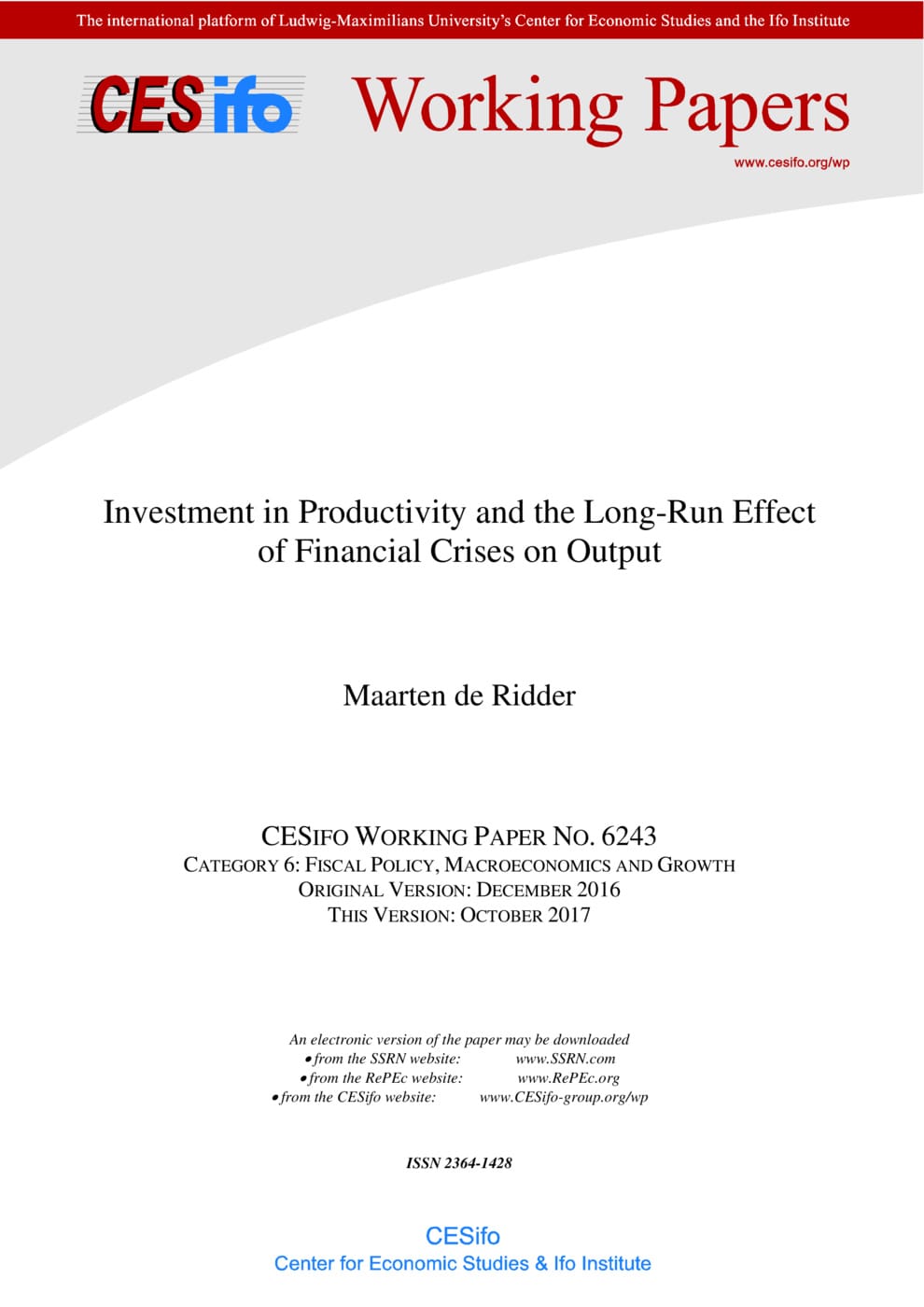Investment in Productivity and the Long-Run Effect of Financial Crises on Output
CESifo, Munich, 2016
CESifo Working Paper No. 6243

This paper identifies the mechanism through which financial crises exert long-term negative effects on output. Theory suggests that a shortfall in productivity-enhancing investments temporarily slows technological progress, creating a gap between pre-crisis trend and actual GDP. This hypothesis is tested using a linked lender-borrower dataset on 522 U.S. corporations responsible for 58% of industrial research and development. Exploiting exogenous variation in firm-level exposure to the Global Financial Crisis, I show that tight credit reduced investments in productivity-enhancement, and significantly slowed down output growth between 2010 and 2015. A partial-equilibrium aggregation exercise suggests GDP would be at least 3.2% higher today if productivity-enhancing investment intensity had remained at its pre-crisis level.
Fiscal Policy, Macroeconomics and Growth
Monetary Policy and International Finance